Collective nouns for birds: Why we call it a murder of crows, murmuration of starlings and a conspiracy of ravens
We celebrate our favourite collective nouns for birds, from the weird and the wonderful to the most curious.

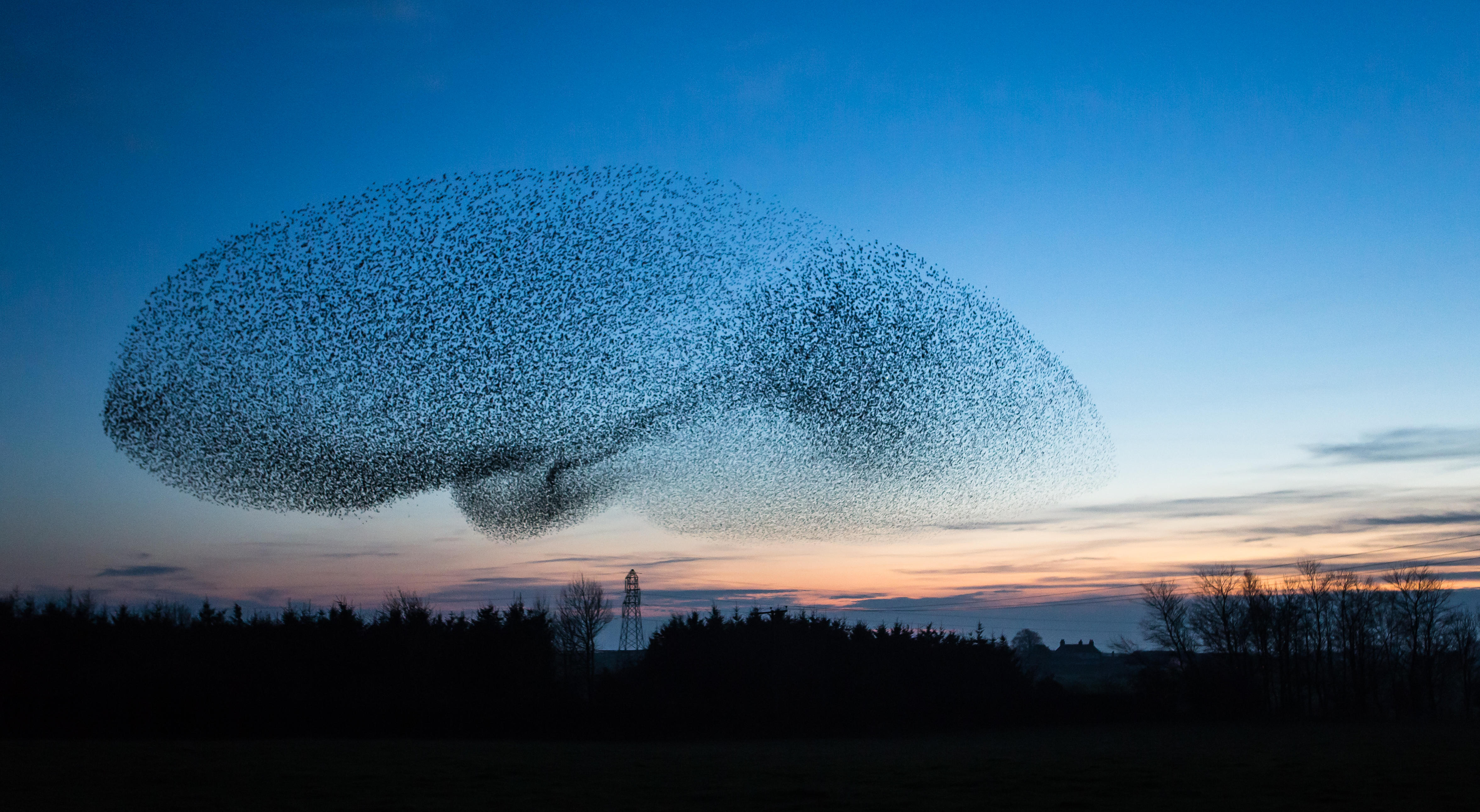
Variously idiosyncratic, intriguing and often unerringly apt in their descriptions of gatherings of birds, animals and people a damning of jurors, an incredulity of cuckolds — most of the collective nouns we use date back to the mid 15th century.
And here are some of our favourites:
- A wake of buzzards
- A confusion of chiffchaffs
- A chattering of choughs
- A commotion of coots
- A murder of crows
- An asylum of cuckoos
- A curfew of curlews
- A trembling of finches
- A swatting of flycatchers
- A prayer of godwits
- A crown of kingfishers
- A parcel of linnets
- A cast of merlins
- A conspiracy of ravens
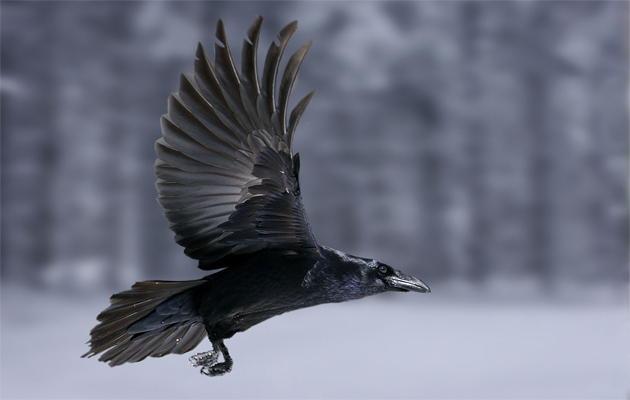
- A worm of robins
- A parliament of rooks
- An exultation of skylarks
- A murmuration of starlings
- A hermitage of thrushes
- A volery of wagtails
- A museum of waxwings
- A chime of wrens
- An orchestra of avocets
- A mural of buntings
- A water dance of grebes
- A booby of nuthatches
- A quilt of eiders
- A mischief of magpies
- AnAerie of eagles
- A wisdom of owls
- A quarrel of sparrows
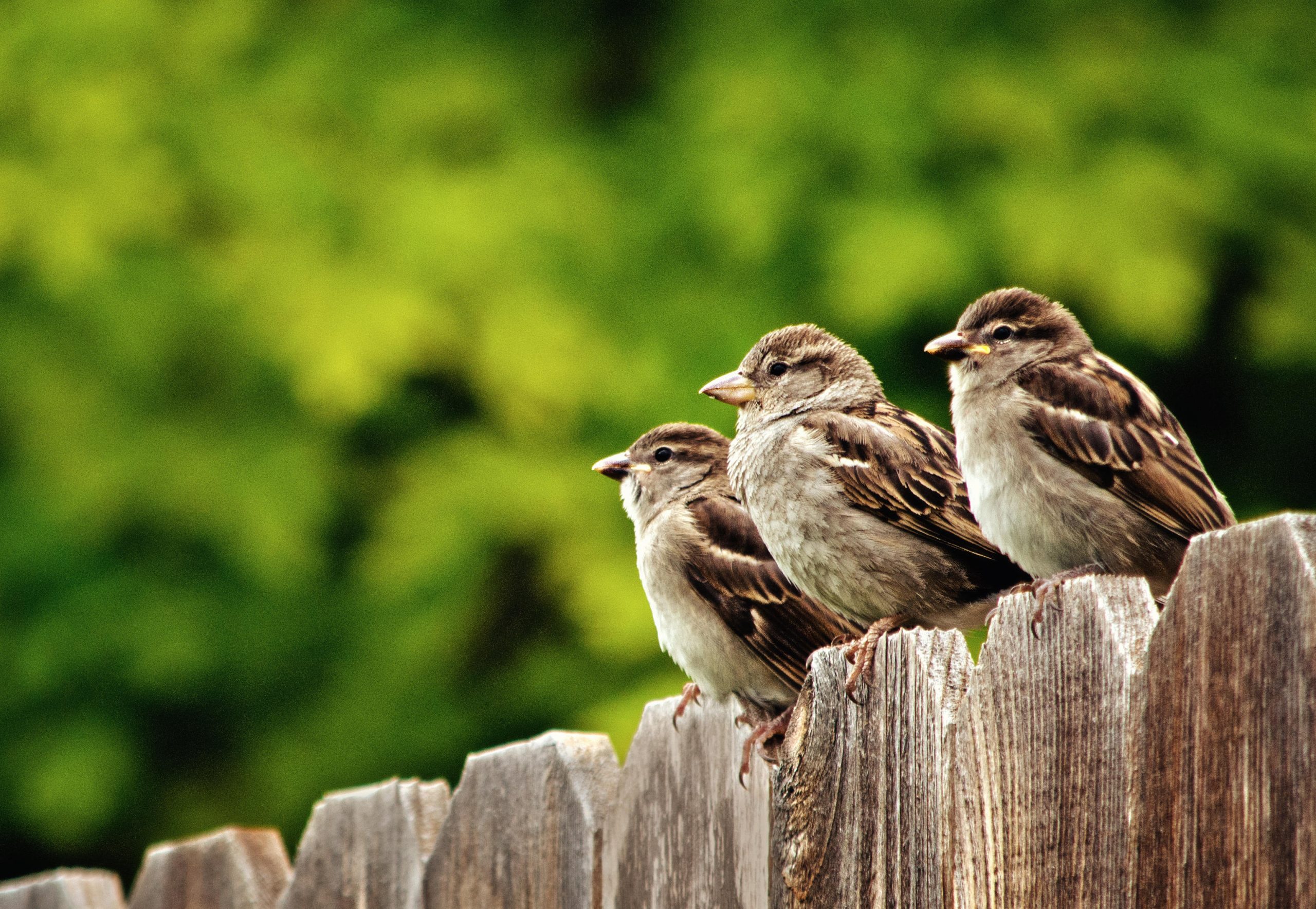
- A wisp of snipe
- A kettle of swallows
- An invisibleness of ptarmigans
- A committee of terns
- A descent of woodpeckers
- A pitying of turtledoves
- A banditry of titmice
- A circlage of house martins
- A scold of jays
- A charm of goldfinches
- A fall of woodcock
- A deceit of lapwings
How birds got their strange collective nouns
As author Chloe Rhodes explains in An Unkindness of Ravens: A Book of Collective Nouns, unlike proverbs, rhymes or homilies, many of these words endure because they were recorded and published in Books of Courtesy handbooks designed to educate the nobility. ‘They were created and perpetuated as a means of marking out the aristocracy from the less well-bred masses,’ she writes.
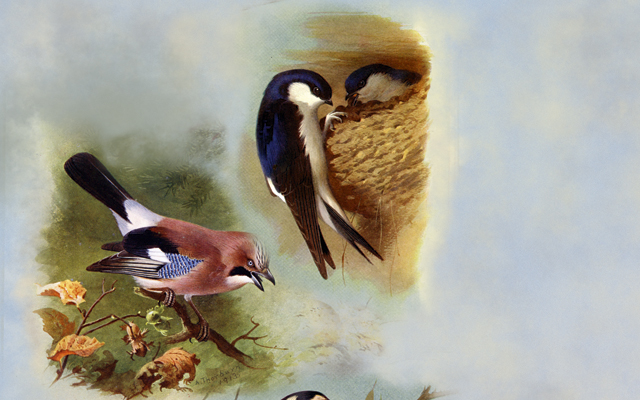
The origins of most collective bird nouns are not always as straightforward as they may first appear.
Some are named after peculiar habits, such as ‘a descent of woodpeckers’, possibly due to their penchant for dropping down from great heights on ants, or characteristics ‘a bellowing of bullfinches’ is thought to come from the extraordinary thickness of the birds’ necks how they respond when flushed (‘a spring of teal’) or a personality trait that we believe them to possess.
For instance, the number of dastardly sounding nouns for crows, such as murder, mob and horde, probably come from medieval peasants’ fears that the sinister-looking corvids had been sent by the Devil or were witches in disguise.
Similarly, ‘an unkindness of ravens’ could stem from the misguided 19th-century belief that the birds were not the most caring of parents, sometimes expelling their young from their nests to fend for themselves way before they were ready.
Exquisite houses, the beauty of Nature, and how to get the most from your life, straight to your inbox.
And as for a murmuration of starlings? Well, a 'murmuration' is an ongoing background murmur – just as is caused by the beating of 10,000 pairs of wings at once.
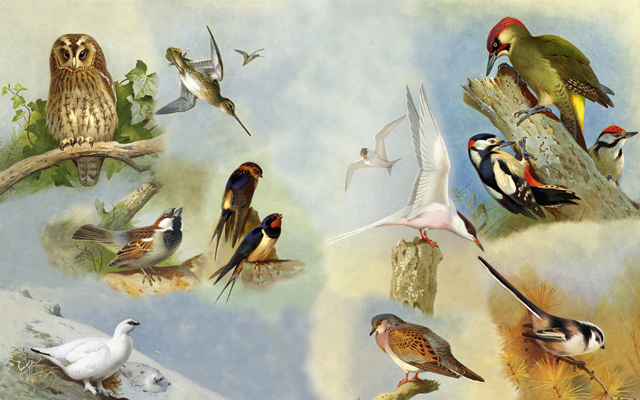
A confusion of collective nouns?
Many of the bird species we have featured within this article have more than one collective noun. As with crows, there are myriad company terms to describe finches (charm, trembling and trimming) and geese, depending on whether they’re flying (skein, wedge, nide) or gathered on water (plump) or land (gaggle).
The delightful word skein is actually an abbreviation of the Old French escaigne, which meant a hank of yarn that, when folded back on itself, resembles the ‘v’ shapes with which geese transcribe the sky when locomoting long distances. That geese in flight are also referred to as ‘a team’ or ‘a wedge’ both reflect the graceful birds’ distinctive mode of travelling en masse.
‘An Unkindness of Ravens: A Book of Collective Nouns’ is published by Michael O’Mara (£9.99). Another useful volume is ‘A Conspiracy of Ravens: A Compendium of Collective Nouns for Birds’, with illustrations by Thomas Bewick (Bodleian Library Publishing, £9.99)
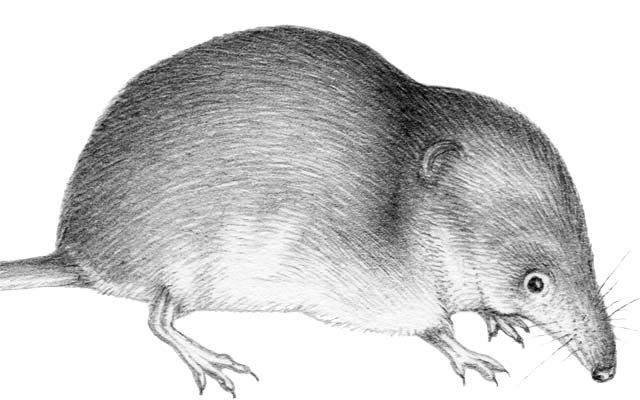
Credit: Lizzie Harper
Flora and fauna latin names
Self-confessed 'geeky' naturalist John Wright explains the reasoning behind scientific sobriquets and why the common shrew is called a 'spider
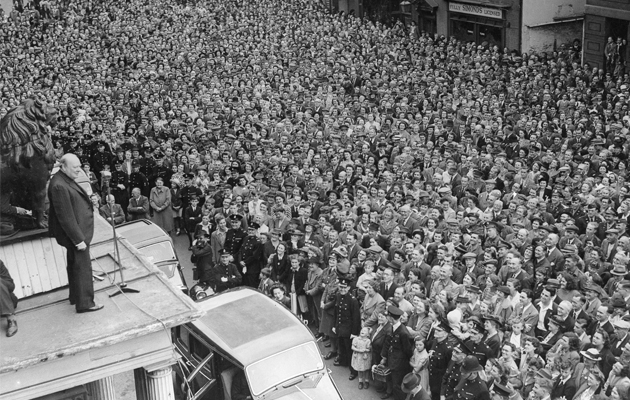
6 famous rhetorical devices used by Winston Churchill
We reveal 6 of his most famous flourishes.
An experienced journalist, Paula Minchin, Country Life's Managing & Features Editor, has worked for the magazine for 10 years — during which time she’s overseen two special issues guest-edited by His Majesty The King in 2013 and in 2018, and the bestselling 2022 edition masterminded by his wife, Queen Camilla. A gamekeeper’s daughter, Paula began her career as a crime reporter on The Sidmouth Herald in Devon, before becoming Pony Club & Young Rider Editor, then Racing Editor, at Horse & Hound. Paula lives in Somerset with her two working Labradors, Nimrod and Rocky.
